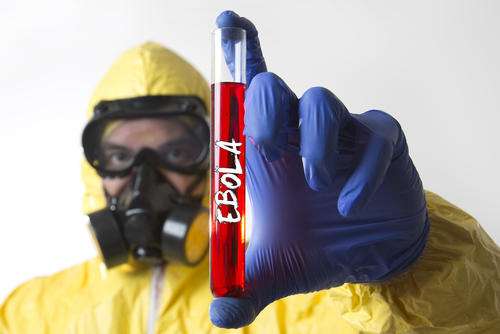Eradicating Ebola: What Will It Take?

Ebola’s outbreak in 2014 became one of the biggest world health threats in recent memory. The development of the disease was exhaustively chronicled as the world watched it go from a few isolated cases in West Africa to a full-blown epidemic there.
Fear reached a fevered pitch when a few infected individuals landed in the U.S., but it died down just as quickly after a few months. Unfortunately, nothing has been able to halt the spread of the virus in Guinea, Liberia and Sierra Leone. The World Health Organization (WHO) reported that the death toll in these countries has reached 8,153 as of January 6, 2015.
As 2014 came to a close, however, a few positive signs emerged and may signal that the Ebola crisis may come to an end:
A new surgeon general
Vivek Murthy, a doctor based in Boston, became the 19th surgeon general in early December. President Obama referred to Murthy’s role as “America’s Doctor,” explaining that the physician would help promote public health domestically and assist in combatting Ebola overseas and in the U.S.
Business Insider’s Erin Brodwin provided a summary explaining what a surgeon general (SG) would typically do in this scenario.
Essentially, Murthy would serve as “domestic communicator” and “international liaison.”
On the domestic front, he would work with the Centers for Disease Control (CDC) and the National Institutes of Health (NIH) to distribute information regarding important health issues like Ebola to healthcare workers and also to the general public. The goals of this strategy would be to simultaneously educate healthcare workers about proper treatment methods while assuring the general public.
Murthy could have a similar role on an international scale as well. Brodwin wrote that the doctor would lead “communication between the CDC and WHO” and “could not only coordinate efforts to send aid to the most affected countries in West Africa, but could also implement airport health screenings and spearhead hospital trainings.”
Although the physician’s role hasn’t been completely defined, Murthy’s final appointment came at an opportune time.
The healthcare system had no SG in place when Ebola first arrived in Dallas. President Obama appointed an ”Ebola Czar” in October, but his contributions to fighting the epidemic were questioned by critics.
Multiple vaccines in the works
As the spread of Ebola intensified over last summer, the three largest drug makers as well as some private companies began searching for a cure.
Merck entered into a $30 million licensing agreement for a potential drug being made by NewLink Genetic Corp. Johnson & Johnson (J&J) announced a $20 million commitment to expedite the development of a vaccine through its Janssen Pharmaceuticals subsidiary.
Glaxosmithkline (GSK) has been testing a vaccine for the virus, too. Bloomberg reported in November that GSK’s serum was deemed safe in an initial study of 20 adults.
Another promising product is the experimental ZMapp drug, a potent cocktail that completely protected animal test subjects during an early pre-clinical trial.
The Department of Health and Human Services seems confident in NewLink and GSK’s efforts. Reuters wrote that the organization awarded “contracts worth a total of about $43 million” to each company in order to speed up the development process.
The end won’t be immediate
It still may take more time to eradicate this disease.
Professor Peter Piot, one of the scientists who discovered Ebola in the 1970s, offered some sobering advice in an interview with the BBC on Christmas Eve.
The outbreak “could have a very long tail and bumpy tail,” the professor explained.
Piot acknowledged that progress was being made in Sierra Leone, but Liberian officials recently found dozens of new Ebola cases on the border between Sierra Leone and Liberia.
He added that officials need to prepare for a long support effort that may last until the end of 2015, especially since it can take a long time to perfect a suitable vaccine.
Although a handful of these vaccines are showing positive results in the early stages of testing, The New York Times noted that a recent dip in new Ebola cases could complicate the development process.
However, the WHO recently released a report explaining that there are still multiple hotspots remaining in West Africa despite the decline.

